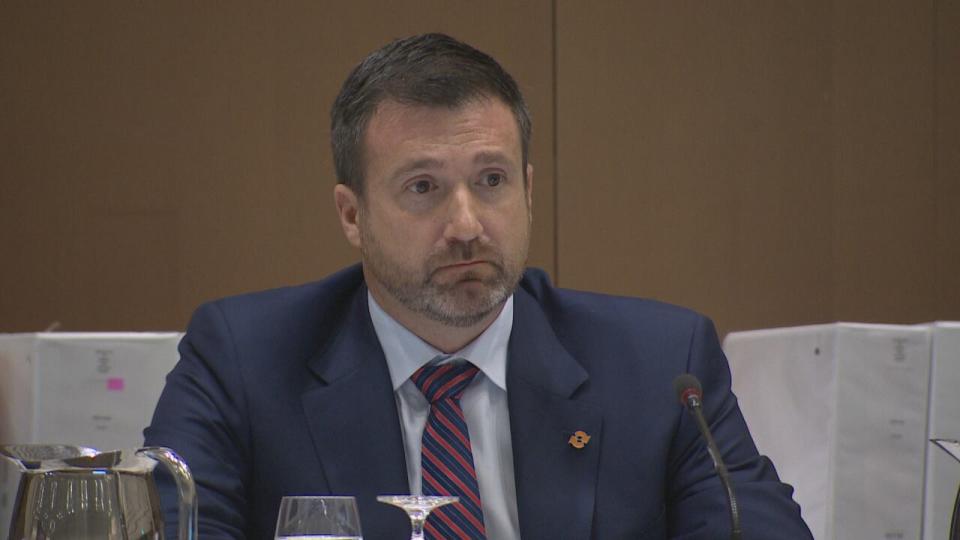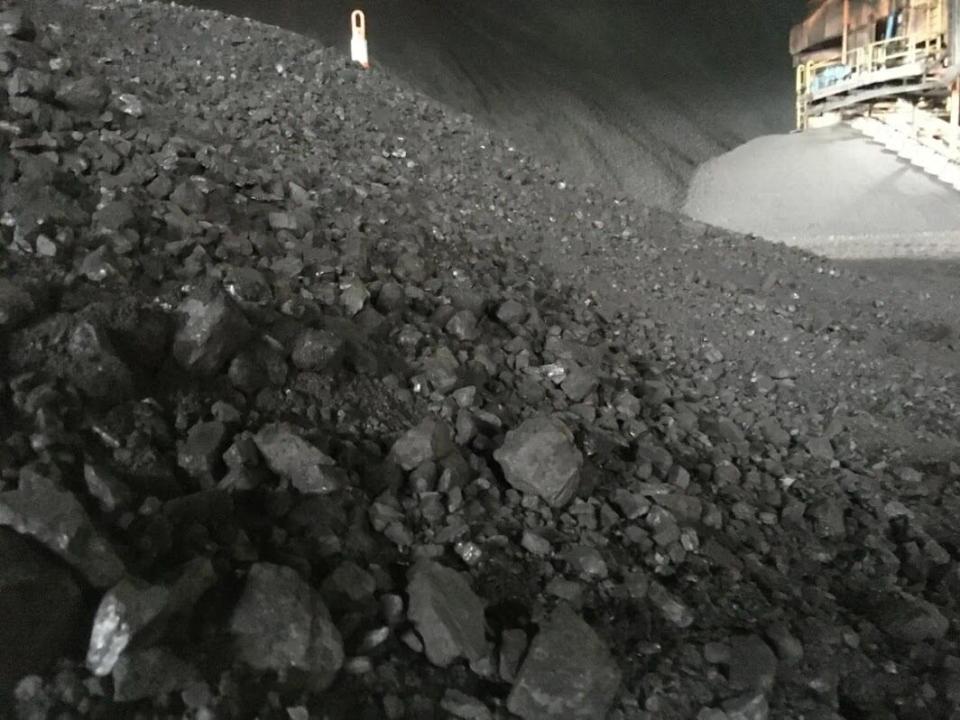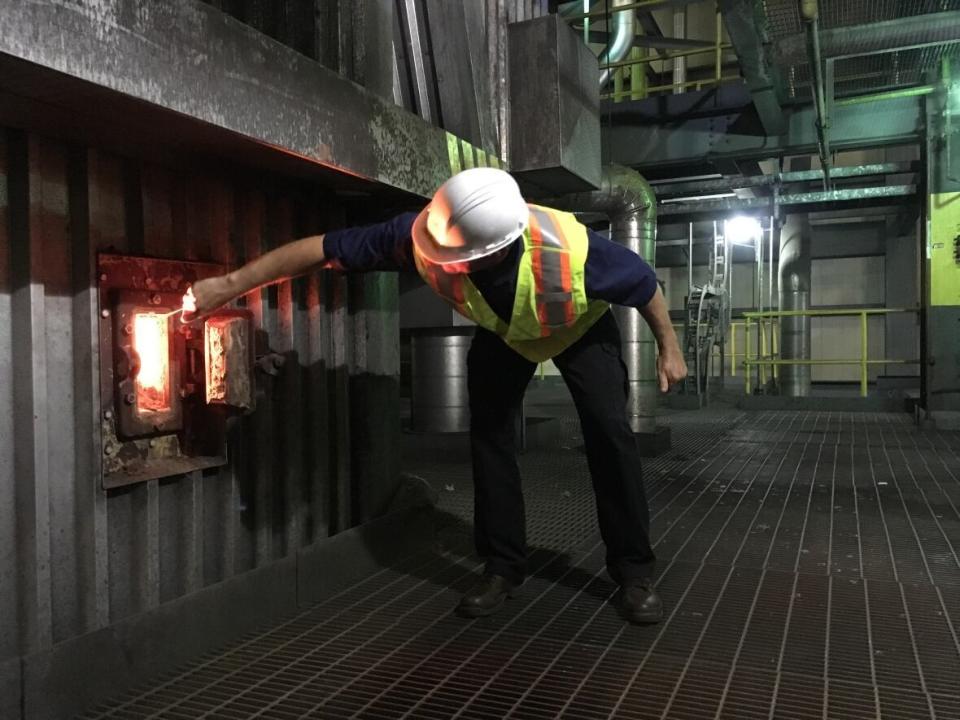Belledune likely to survive the end of coal in 2030, N.B. Power hearing told
Testimony at N.B. Power's rate hearing suggests the utility believes it will be able to economically repurpose the Belledune coal fired generating station to burn wood pellets and avoid its closure in 2030 under federal carbon policies.
On Thursday, Larry Kennedy, a U.S. based expert in utility depreciation issues, testified there is no need to shorten Belledune's expected useful life for accounting purposes from 2040 to 2030 because it is likely it will be refitted to burn wood, which carries no carbon costs.
"The company is very comfortable with where they are that there's a high probability that plant will have a life beyond 2030," said Kennedy.
Belledune is a critical linchpin in the economy of northeastern New Brunswick. It is an important employer, a buyer of local goods and services and a major source of local tax revenue.

This year the generating station is contributing $2.5 million in property taxes to the Village of Belledune, half of the community's entire municipal budget.
Fear the plant might have to be shuttered has hung over the region since Canada announced in 2018 a series of climate policies that include plans to end power generation from coal by 2030.
Prior to Kennedy's testimony, N.B. Power's vice-president of strategic partnerships and business development gave a lengthy update about plans for Belledune.
Brad Coady said the issue is still being evaluated, but converting Belledune to burn wood pellets has emerged as a leading option, largely because it allows the existing plant and infrastructure to continue in service.
He said this is cheaper than building a new power plant from scratch.
Pellets are more expensive as a fuel than coal alone, but cheaper than the combination of coal and carbon taxes, and the switch would make sense even if coal was not being banned.

"The carbon tax will likely make this fuel conversion a cheaper alternative regardless," Coady said.
N.B. Power has more tests scheduled for this year and is studying the performance of different kinds of pellets and in different combinations to see what is most efficient. So far, the utility said, burning wood at Belledune is beating all potential alternative solutions.
"We still have to conclude the work on the business case and the investment rationale document to support that decision, but all indications are to date that it is a leading candidate for the alternative to coal," Coady told New Brunswick public intervener Alain Chiasson.

Pellets emit greenhouse gases when burned like coal but the fuel is not subject to carbon taxes because growing new trees reabsorbs carbon from the atmosphere.
Some environmentalists question how much of an improvement the fuel is, but for the moment it is treated favourably by Canadian climate regulations.
New Brunswick does have a number of wood pellet producers, but Coady said volumes and specifications required by Belledune could result in a significant expansion in that local industry.
For test burns last year, N.B. Power had to import suitable pellets from Quebec and Sweden.
"Our primary objective would be to induce the creation of this industry within New Brunswick," Coady said.


